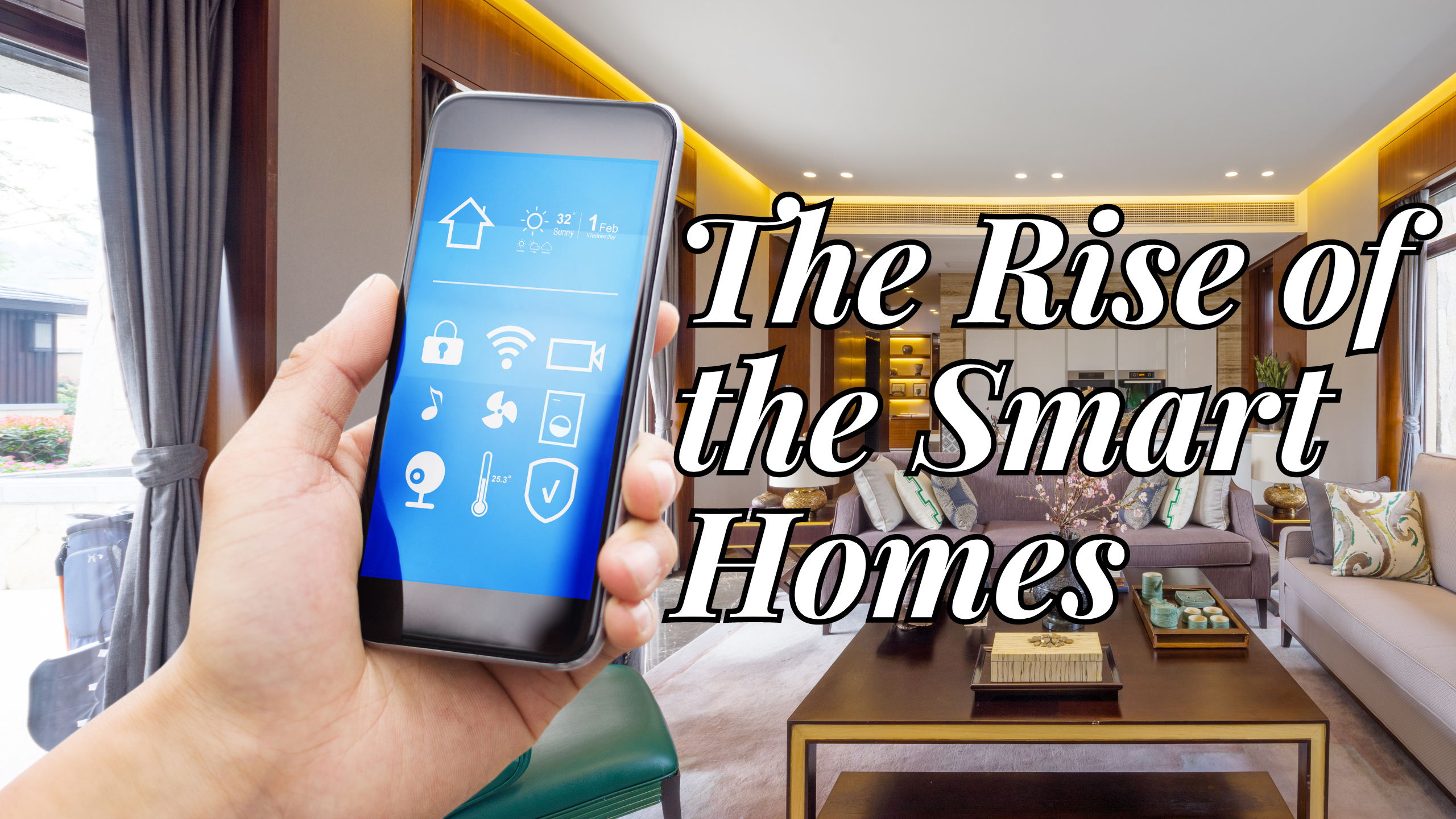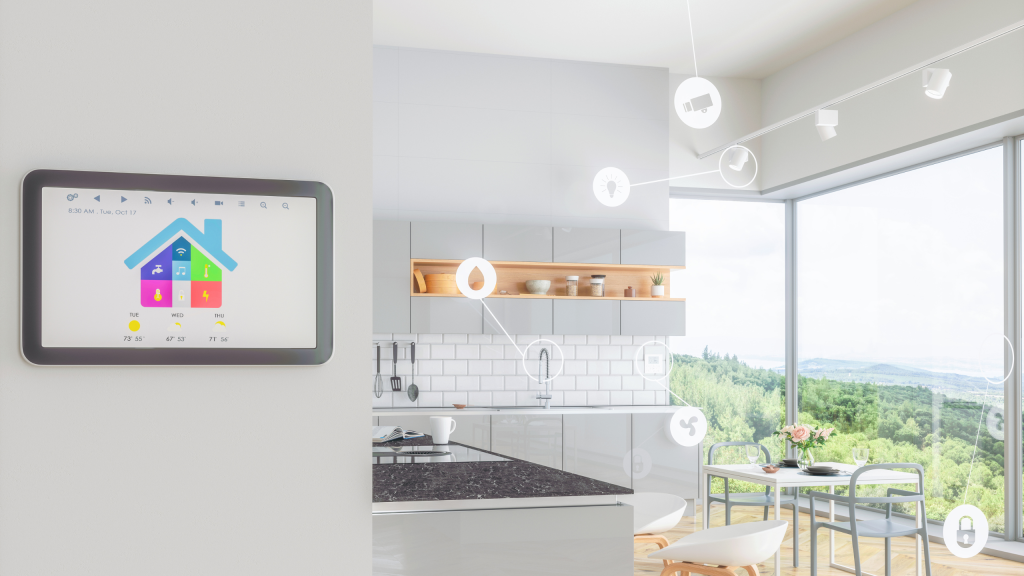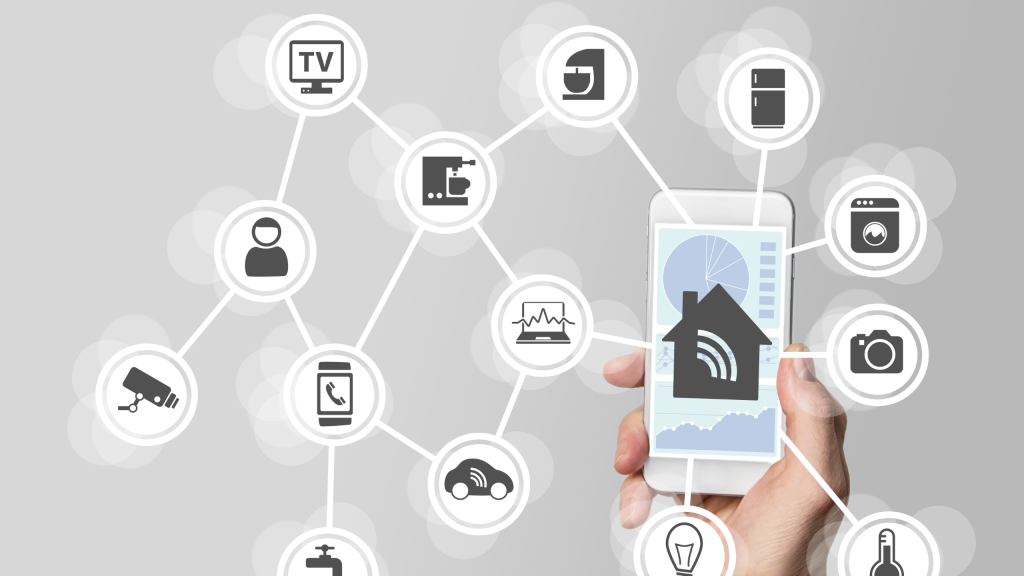The Rise of the Smart Homes – Integrating Technology into Everyday Life

What Are Smart Homes?
As technology continues to advance at a rapid pace, it’s not surprising that we’re seeing a growing trend toward smart homes. A smart home is one that is equipped with various devices and appliances that can be controlled remotely, via a smartphone, tablet, or computer. These devices can include everything from smart lights, thermostats, security systems, and even kitchen appliances. The rise of the smart home has made it easier than ever for homeowners to manage their homes from virtually anywhere, at any time.
In this article, we’ll explore the benefits of integrating technology into everyday life through smart home devices. We’ll also look at some of the most popular smart home devices on the market, and how they can help improve the quality of life for homeowners.
Pros of Smart Homes
Smart homes have become increasingly popular in recent years due to the many advantages they offer. Here are some of the pros of smart homes:
Convenience: One of the main benefits of smart homes is that they can make everyday tasks more convenient. Smart home devices can automate tasks such as turning lights on and off, adjusting the thermostat, or locking doors, saving time and effort.
Energy efficiency: Smart homes can help reduce energy consumption and save money on utility bills. Smart thermostats, for example, can learn a homeowner’s preferences and adjust the temperature accordingly, reducing energy waste.

Enhanced security: Smart homes can provide improved security through features such as smart locks, video doorbells, and security cameras. These devices can be monitored remotely and provide peace of mind when it comes to home security.
Increased home value: Smart home technology can increase the value of a home, making it more attractive to potential buyers. This is particularly true in today’s market, where many homebuyers are looking for homes with smart home features.
Personalization: Smart homes can be personalized to a homeowner’s preferences, allowing for customized experiences. Smart home devices can learn a homeowner’s habits and preferences and adjust accordingly, providing a more comfortable and convenient living experience.
Improved accessibility: Smart home devices can help people with disabilities or mobility issues live more independently. For example, voice-activated assistants can allow people with mobility issues to control devices without physically interacting with them.
Cons of Smart Homes
While smart homes can provide many conveniences and benefits, there are also several potential downsides or cons to consider. Here are some of the cons of smart homes:
High cost: Smart home technology can be expensive, especially when it comes to integrating multiple devices and systems. This can make it difficult for some people to afford or justify the cost.
Complexity: Smart home technology can be complex, and the setup and integration of various devices can require a significant amount of technical knowledge. This can be frustrating and time-consuming for some users.
Security risks: The more connected devices there are in a home, the more opportunities there are for hackers to access personal data and sensitive information. Smart home devices may also be vulnerable to malware or other cyberattacks.
Dependence on technology: Smart homes rely heavily on technology, and if something goes wrong, it can be difficult or expensive to fix. Additionally, if a homeowner is not comfortable with technology, they may struggle to use and maintain their smart home system.
Privacy concerns: Smart home devices may collect and store personal data, which can raise concerns about privacy. Some users may be uncomfortable with the idea of their smart home devices collecting information about their habits, routines, or even their physical movements.
Compatibility issues: Different smart home devices may not be compatible with each other, which can make it difficult to integrate and automate various systems. This can also make it harder to expand or upgrade a smart home system over time.
10 Popular Smart Home Devices
There are many different types of smart home devices on the market, each with its own unique features and benefits. Some of the most popular smart home devices include:

1- Amazon Echo
The Amazon Echo is a voice-controlled smart speaker that can be used to play music, answer questions, and control other smart home devices. With the Alexa virtual assistant, you can easily control your home with voice commands.
2- Philips Hue
The Philips Hue is a range of smart lighting products that can be controlled through a smartphone app or voice commands. You can set schedules, change the color and brightness of your lights, and control them remotely.
3- Nest Learning Thermostat
The Nest Learning Thermostat is a smart thermostat that learns your temperature preferences and adjusts the temperature automatically. It can be controlled remotely through a smartphone app, and it can also save you money on your energy bills.
4- Ring Video Doorbell
The Ring Video Doorbell is a smart doorbell that has a built-in camera, allowing you to see who is at your front door from your smartphone. It can also detect motion and send alerts to your phone.
5- August Smart Lock
The August Smart Lock is a smart lock that can be locked and unlocked remotely using a smartphone app. It can also be programmed to unlock automatically when you approach your door.
6- Ecobee Smart Thermostat
The Ecobee Smart Thermostat is another smart thermostat that can be controlled remotely using a smartphone app. It also has built-in Amazon Alexa voice control, allowing you to control other smart home devices with voice commands.
7- Nest Cam Indoor
The Nest Cam Indoor is a smart security camera that can be used to monitor your home from anywhere. It has a built-in microphone and speaker, allowing you to communicate with anyone in your home remotely.
8- Sonos One
The Sonos One is a smart speaker that can be controlled with voice commands through Amazon Alexa or Google Assistant. It also has great sound quality, making it perfect for music lovers.
9- iRobot Roomba
The iRobot Roomba is a smart vacuum cleaner that can be programmed to clean your home automatically. It can be controlled with a smartphone app, and it can also be scheduled to clean at specific times.
10- Samsung SmartThings Hub
The Samsung SmartThings Hub is a central control unit for all of your smart home devices. It can be used to control lights, thermostats, security cameras, and more, all from one convenient location.
Conclusion
The rise of the smart home has made it easier than ever for homeowners to manage their homes from virtually anywhere, at any time. Smart homes offer many benefits, including increased convenience, enhanced safety and security, improved energy efficiency, and cost savings. With so many different types of smart home devices on the market, homeowners can choose the ones that best meet their needs and budget.




